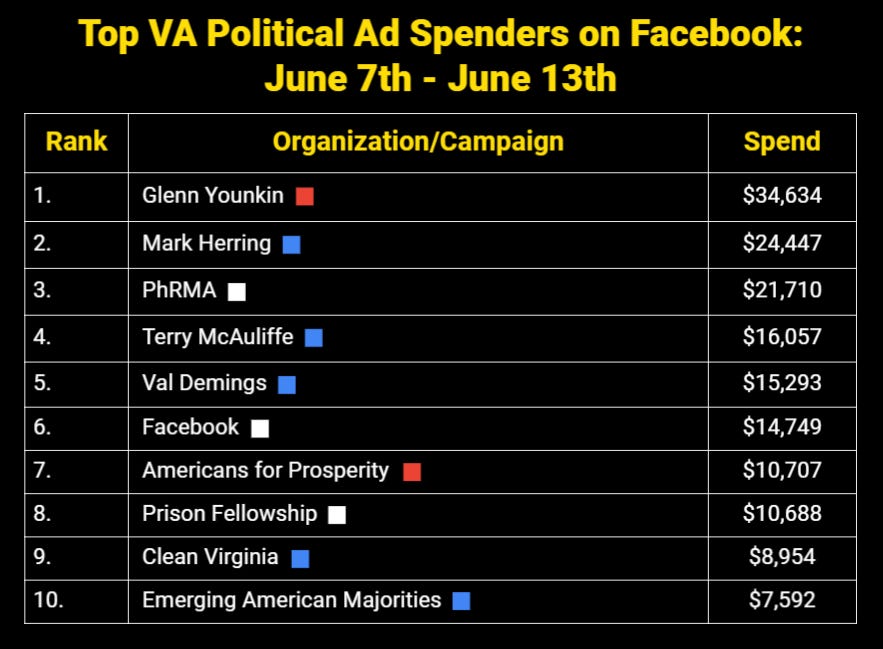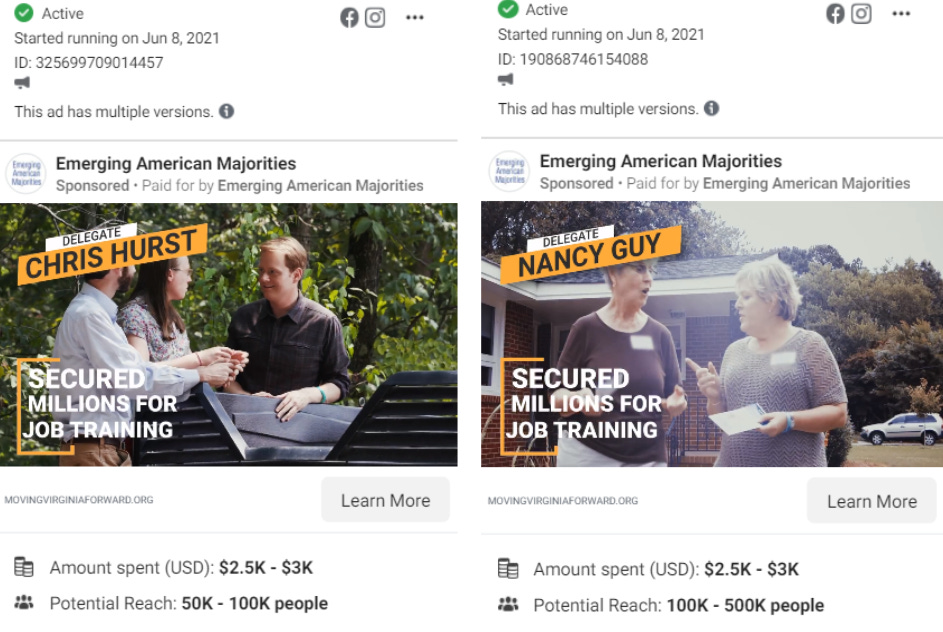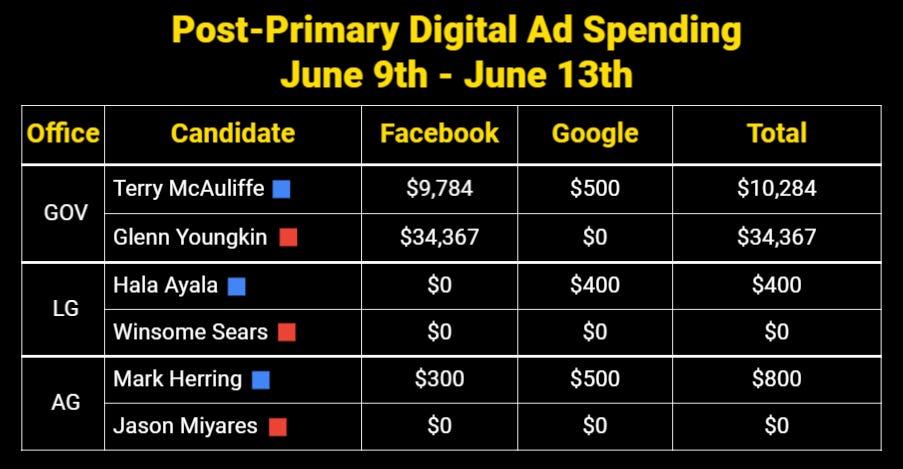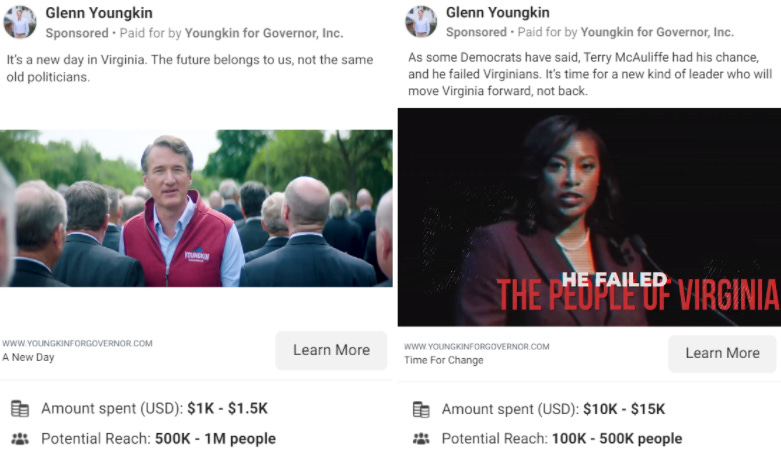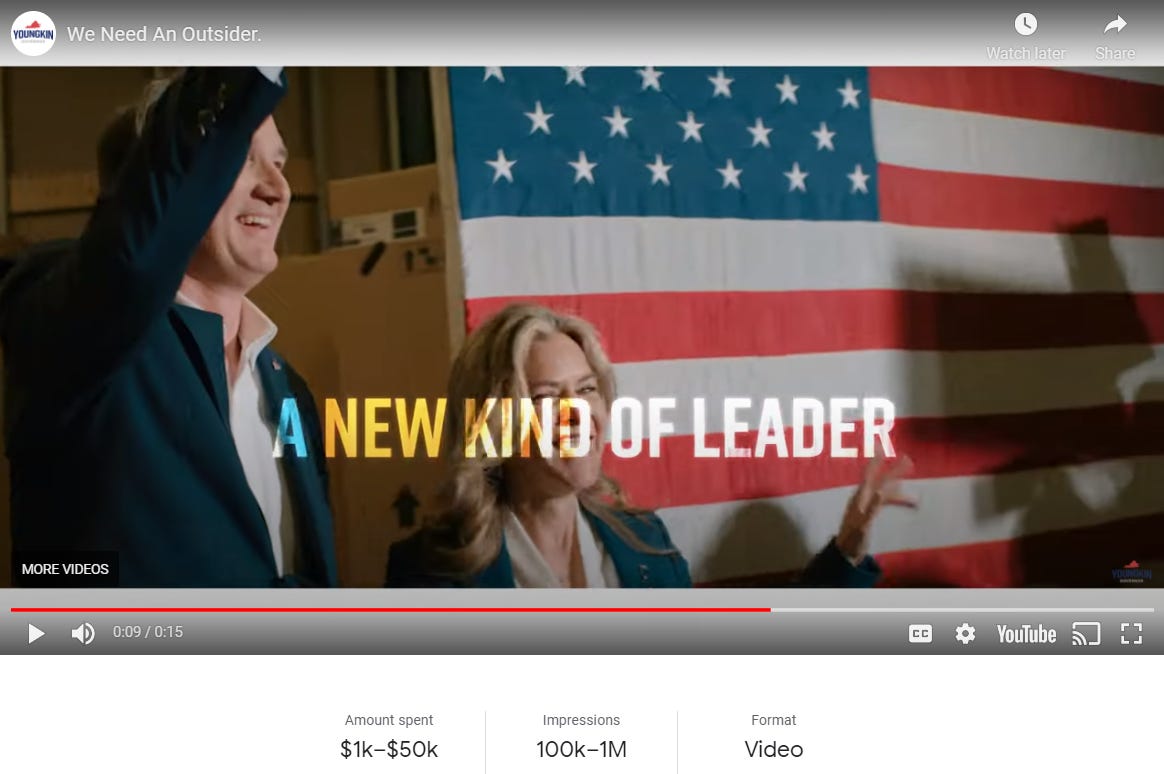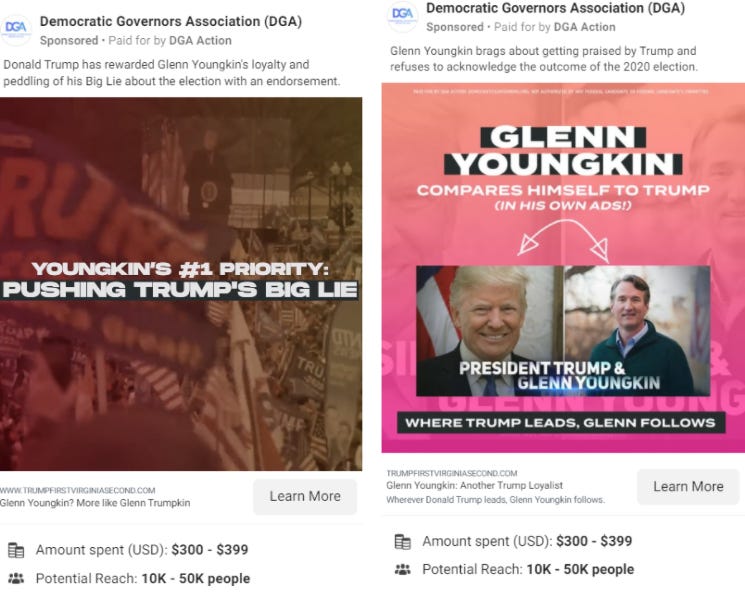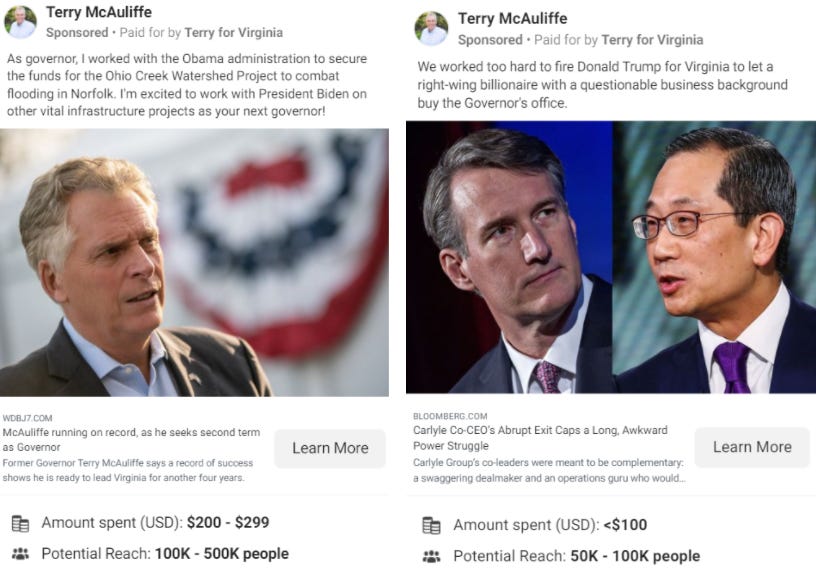Welcome to FWIW Virginia, where we analyze digital spending trends on both sides of the aisle in the 2021 Virginia statewide and legislative elections. Each week, we look at how campaigns are investing in digital engagement and the online tactics they use to reach voters across the Commonwealth. Was this email forwarded to you? Click here to subscribe.
With the statewide slates settled, candidates on both sides of the aisle are hunkering down to raise money and prepare messaging for what’s expected to be a very competitive, very expensive general election. While we didn’t pick up much of any digital spending by candidates in competitive races for the House of Delegates last week, the statewide races at the top of the ticket are already gearing up their digital programs for the general election.
How are the candidates for statewide office leveraging digital to build their lists + define themselves early? And is anyone filling the digital spending void in Delegate races? We take a look in this week’s edition of #FWIWVA.
But first...
2021 by the Numbers
Now that the primaries have wrapped, we’ll be publishing cumulative and weekly spending data in competitive elections for the House of Delegates and statewide offices.
FWIW, here are the top 10 spenders on Facebook in Virginia last week.
Our spending tracking runs from Monday to Sunday, and while the top of the ticket Gov race immediately transitioned into general election-focused spending, most of the spending we saw from House of Delegates candidates was still focused on their June 8th primary. However, Emerging American Majorities, a Facebook page that was last used to attack Arizona GOP lawmakers on healthcare, appears to be running early positive ads for incumbent Democratic delegates.
So far, the group is spending on behalf of Dels. Wendy Gooditis (HD 10), Chris Hurst (HD 12), Dan Helmer (HD 40), and Nancy Guy (HD 83). All of these candidates, except for Hurst (who faced an underfunded GOP challenger in 2019), won by less than 5 points in 2019.
In all, the less than $8,000 the group spent this week will be a tiny drop in the bucket compared to what will be spent by campaigns + outside groups on these races in the coming months, but early digital ads are valuable for defining these incumbents before the inevitable onslaught of negative GOP ads flood mailboxes + social media feeds.
Game On
As expected, the race to be Virginia’s next Governor is already heating up, with the deep-pocketed Youngkin and the well-connected McAuliffe racing to leverage paid digital ads to define themselves to voters. In the races for Lt. Governor and Attorney General, the GOP nominees continue to go dark on paid digital ads, while Democratic nominees Hala Ayala and Mark Herring run digital acquisition ads seeking to capitalize off of their primary victories.
Youngkin’s big digital spending continues his trend of dumping money into paid media across the state, both on digital ads and more traditional channels like TV and radio. With no legislative record to defend, Youngkin is hoping that his personal fortune will allow him to define himself before McAuliffe + his aligned outside groups can.
Early on, Youngkin is trying to introduce himself to general election voters as a commonsense outsider focused on the economy, education, and “safe communities,” positioning himself against McAuliffe’s experience as Governor and former DNC chair. Youngkin is also running ads featuring former Del. Jennifer Carroll Foy, who echoed similar attacks against McAuliffe in the Democratic primary.
From the GOP convention on May 8th to the Democratic primary on June 8th, Youngkin’s campaign spent around $27,000 on Google running acquisition ads + Youtube pre-roll ads with a similar “outsider” theme.
Also motivating Youngkin’s early spending was the bruising GOP convention campaign, which forced Youngkin to move hard to the right to win over hardcore conservative convention-goers, as he leaned into the dangerous, anti-democratic Big Lie + went on Tucker Carlson to racebait about Critical Race Theory. McAuliffe + Democratic groups are already pivoting to make sure voters don’t forget Youngkin’s hard-right stances, with the Democratic Governors Association running ads during the Democratic primary tying Youngkin to Trump.
While the DGA filled the general election-focused void in the waning days of the Democratic primary, it’s tapered its attacks on Youngkin since the primary, allowing the McAuliffe campaign to run the show.
Since the primary, McAuliffe’s pivot to general election messaging is focusing on kitchen table issues, highlighting his statewide accomplishments, like growing the state’s economy + investing in workforce skills training, as well as local infrastructure projects started during his administration, which his campaign appears to be touting in hyper-local ads. McAuliffe has also been training his fire on Youngkin, boosting news articles about his questionable business practices + close ties to Donald Trump.
With the Democratic primary barely in the rearview mirror + campaigns on both sides pivoting to the general election, expect digital spending from both sides in statewide and House of Delegate races to ramp up. Between the Governor’s race that will likely set a new spending record and numerous multi-million dollar Delegate races across the Commonwealth, voters + operatives alike should buckle up for a general election like no other.
Thanks for reading this week’s FWIW Virginia! We’re so excited to be back following these critical elections in the Commonwealth. If you enjoy reading this type of content each week, we hope you’ll support our work by clicking share and tweeting out this newsletter below! As always, email us with ideas of what you’d like us to dive into next.
You can also sign up to receive our national newsletter, FWIW, here.




